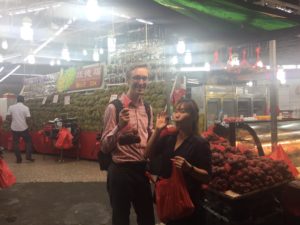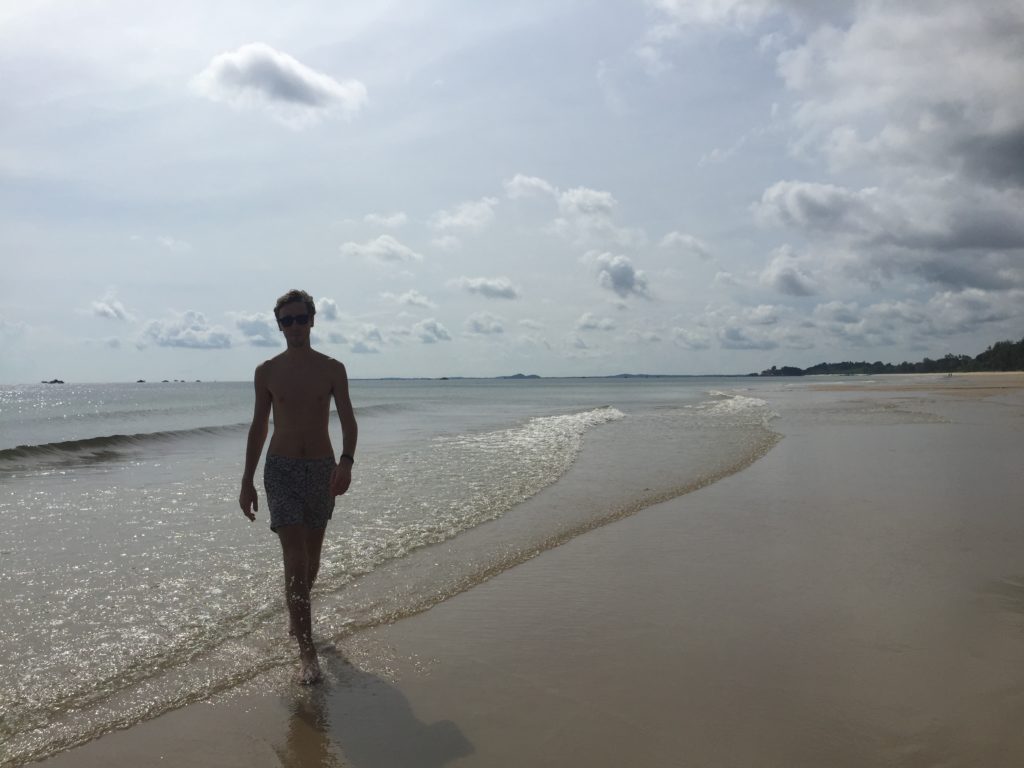04 Jul Being a Professional in Singapore
Sam Varie from Butler University shares his current experience working on a Non-profit Internship in Singapore as one of Absolute’s Summer 2017 Intern Heroes
I honestly did not think there were that many differences between being a working professional in the United States and Singapore, until I attended a career development workshop hosted by my employer’s Human Resources department. The workshop was designed and moderated by Goldman Sachs, an investment banking firm. From my (little) knowledge of the corporate world in the United States, I noticed that Singapore’s corporate work environment is very different from what I am expecting and have heard the US to be like. Here’s how:
Work-Life Balance vs Work is Life.
In the United States, there has been a continuous conversation of reaching and maintaining a work-life balance. The career fairs and workshops I have attended at university have always highlighted the company’s focus on helping to create a healthy work lifestyle. Although not all companies do this and not all employees can reach a balance, many companies still provide outlets at work for employees to take a break and rejuvenate. In my First-Year business class we studied the work environments of businesses in Indianapolis and across the country to understand what companies are doing. RCI, for example, offers a full gym and yoga studio. Airbnb, headquartered in San Fransisco, offers flexible workspace, allowing employees to work on couches, bring their dogs, and have meetings over a BBQ, creating a home away from home. These environments acknowledge the need for a positive working environment and attempt to insert a balanced lifestyle into their employees.
At the career development workshop this week, a senior member of Goldman Sachs asked, “Raise your hand if you believe you have achieved a work-life balance.” Within a crowd of 50 people, there was not one person who raised their hand. I was shocked, but the Goldman Sachs employees looked at the crowd as if they expected it. As the discussion continued, my colleagues began saying they will not be able to achieve a balance, others saying they do not need a balance and some saying, “What is there to balance?” Since my work experience is not intensive, I asked the Goldman Sachs employees to share their experiences. A 35/year-old mom and project manager responded and said that for many years, she and her colleagues would have 10/12-hour work days, making work their life. She then followed up and said that it was actually a competition to see who would stay the longest to display to their boss who is the “most hardcore and intense.” She and her coworkers clearly did not have a balance and it seemed to be the norm in the room. But what struck me even more was the way in which they attempted to please their boss. By competing over who could stay the longest, they were not proving the quality of their work or building a relationship, but were proving their stamina and dedication in a very passive way.
 Trying durain, lychee & mangosteen at a local fruit market with my coworker, Kat.
Trying durain, lychee & mangosteen at a local fruit market with my coworker, Kat.
Active vs Passive Competition
Businesses across the world are naturally competitive. It’s a positive attribute of the business world that ensures we have a productive economy. What I noticed in this workshop, however, is that companies in the United States have a more active form of competition, where Singapore is extremely passive in competition (i.e. seeing who can stay at work the latest).
From hearing alumni speak at university about their first years in the business world, each person has stressed the need for actively networking once a new employee steps foot into work.They do so to gain professional connections and develop their personal brand. I sometimes wonder if employees spend more time networking than they do working. All of this “shaking hands and kissing babies,” is done to advance their career, to get that promotion and everyone knows it.
It’s quite different here. To begin with, Asia in general is a quieter and more reserved culture and it permeates the business world. Instead of networking and building those relationships, they let their work speak for and by itself. The 35 year-old Goldman Sachs worker sits at her desk waiting for someone else to be the first to leave, wanting to show that she is the most “hardcore,” but in a very passive way. She (and the rest of the businesses world) rarely communicates to her boss or colleagues that she is interested in a promotion or advancing her career. It’s as if it’s taboo.
By no means am I saying one way is better than the other. US employees may be direct and forceful about advancing their career, but at the end of the day, Singaporeans might have more work/experience to show for it.
The Personal Brand
For me, personal brand is extremely important. It depicts what people see in me and how they view my character. I am always working to portray my personal brand as someone who is dynamic, driven and dedicated. I carry my personal brand in my school work, extracurriculars, social life, work and internship. It defines how people see me, and how I see myself. My brand makes me unique and it makes me marketable to those who are looking for those traits. In my opinion, developing, knowing and staying true to your personal brand is crucial for success.
When personal brand got brought up at the career workshop, it was a new and difficult topic. The majority of the people in the room had no idea what a personal brand was. Once we clarified its meaning, my colleagues began to really question how it is possible to achieve a personal brand. For me, it’s clear. I consistently and outwardly display the traits I want associated with my name. I did not understand why it was difficult. Then, my colleague began discussing that because life and work is much more reserved in Asian culture, creating and displaying a personal brand is very difficult. Now it made sense. At work, employees remain reserved and uphold tradition. Doing so leaves little room for creating a personal brand.
After hearing this conversation of personal brand and the entirety of the workshop, I have become aware that being a professional in Singapore is widely different that being a professional in the States. It means working in a more reserved workplace, rooted in tradition. I have grown to appreciate this work culture and have loved learning a new country as a professional in Singapore.
 Weekend in Bintan, Indonesia
Weekend in Bintan, Indonesia


No Comments